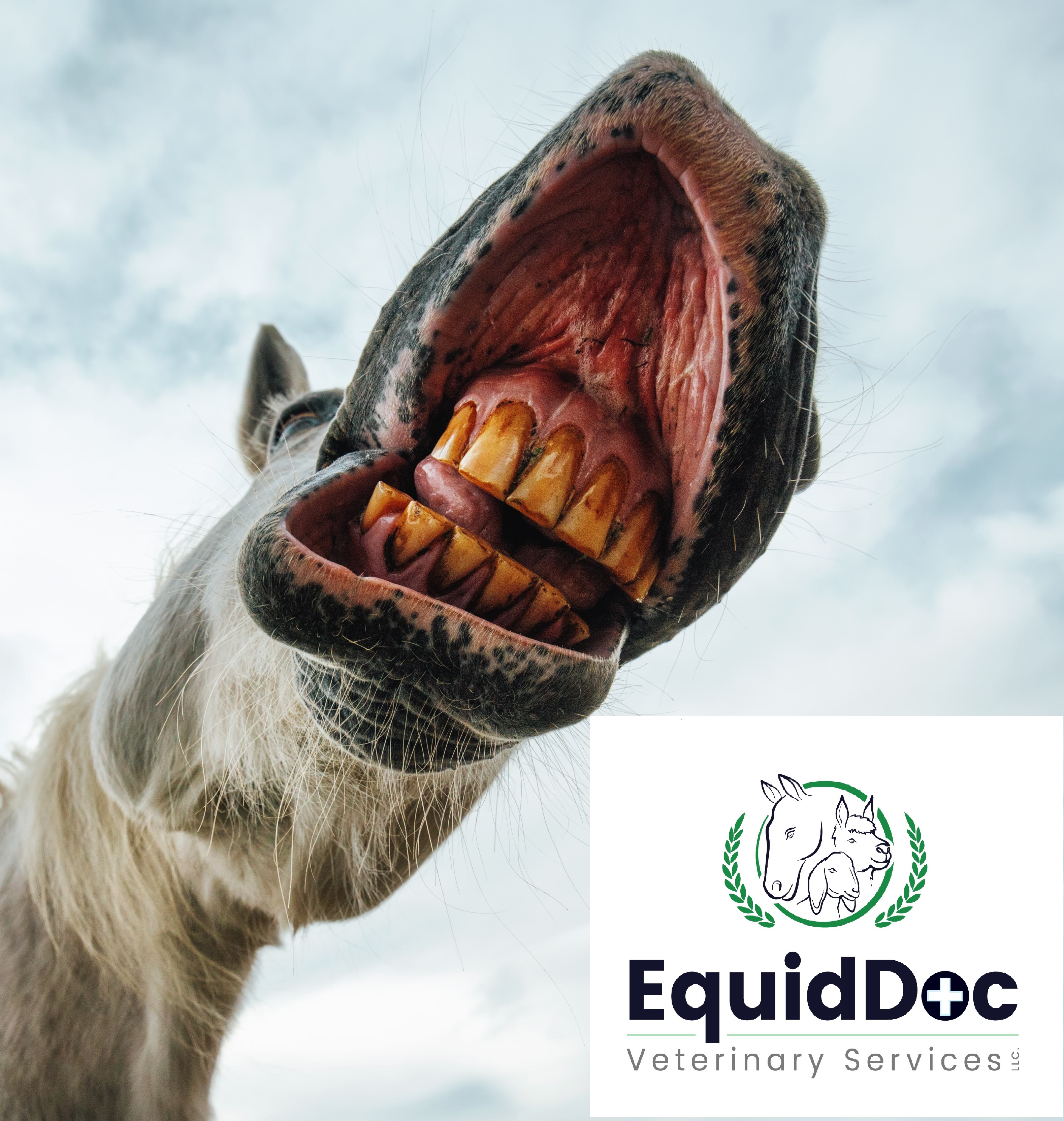Domestication of the horse has occurred over thousands of years and with the invention of bits and bridles for work and sport, humans have been practicing equine dentistry since before 750 BC! Horses have hypsodont teeth or teeth that continuously erupt from below the gum line, making them hardy grazers that can survive on large volumes of poor-quality roughage. The modern horse is very different from their predecessors because they live longer, are fed a high-quality diet, and are bred for qualities unrelated to dental health. With these modern influences and their unique dental anatomy, our domestic horses are predisposed to certain dental conditions.
Equine dentistry has changed significantly in the last decade not only due to new tools and technology for diagnosis and treatment of dental conditions but also the management of pain and anxiety while examining our equine companions. Just as “sedation dentistry” is beneficial in humans, its practice is safely utilized in horses to ease anxiety and prevent pain during dental procedures. Dental disease in horses is often overlooked because horses may continue to eat despite significant fractures, infection and tooth pain. The mouth is the first part of the gastrointestinal tract and vital to proper digestion of nutrients which leads to general physical and immune health. For these reasons, an annual oral examination is essential to your horse’s health!
Also Read: A Guide For Basic Horse Care
The oral examination is best performed on a sedated horse with a full mouth speculum to allow thorough evaluation while maintaining safety for your horse, yourself and the veterinarian. Depending on the results of the oral exam, your veterinarian will prescribe floating, dental x-rays, tooth extraction, or antibiotic therapy. Most horses should have an oral exam performed by your veterinarian once a year, while some younger and older horses may have different or more frequent examination requirements.
Call EquidDoc today for your horse’s oral exam (508-885-4205) and stay tuned for our next blog about what we look for on oral exams at each life stage of your horse!


